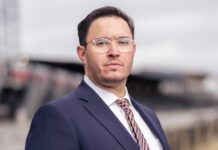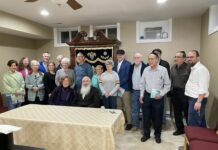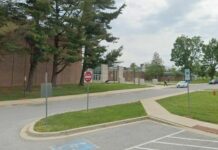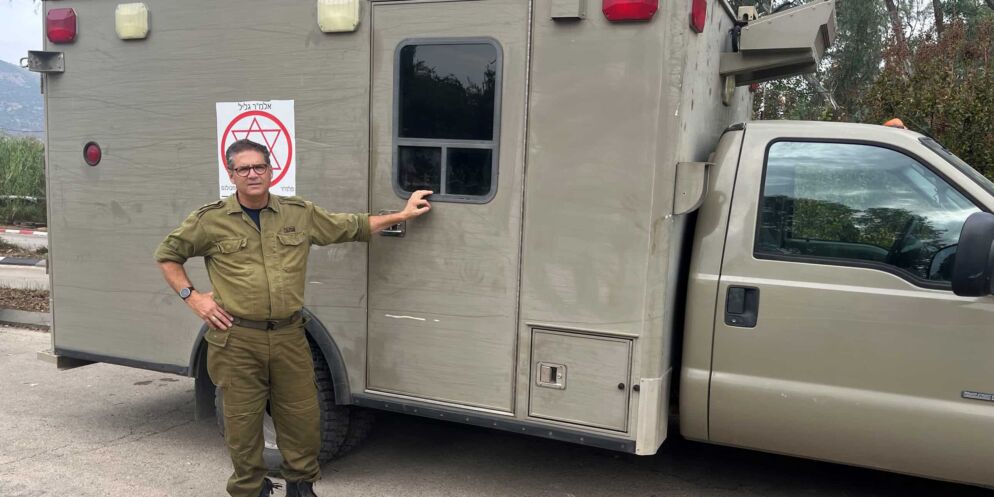
There are some Baltimore residents who have traveled to Israel in the days since Oct. 7 to provide volunteer services, and there are some that have started or resumed service in the Israel Defense Forces as the war continues. But local doctors and first responders have also been traveling to Israel to help its residents heal from the trauma they suffered on Oct. 7, treating patients and instructing soldiers in first aid.
According to the Times of Israel, over 12,000 medical workers from all over the world have expressed their intent to Israel’s Health Ministry to travel there for volunteer work, as of Nov. 17. Over 150 have made the trip and are now working to treat civilians and soldiers.
Dr. Harry Flaster, a physician from Arnold and a member of Temple Beth Shalom, is one of many doctors whose arrival in Israel was facilitated by a joint initiative between Nefesh B’Nefesh, the Israeli Ministry of Health, the Ministry of Aliyah and Integration and The Jewish Agency for Israel. The organizations worked together to create a database of prospective medical volunteers so they can be dispatched to address physician shortages.
Flaster made aliyah in 2016 and now splits his time between Israel and Maryland. He has previously worked at Israeli medical organizations, such as Hadassah Ein Kerem Hospital in Jerusalem and IsraAID in Tel Aviv. Following the events of Oct. 7, he quickly made the decision to return to Israel to offer his services.
“Three of my brothers and my brother-in-law are all in the army now,” Flaster said. “When sick or injured soldiers need to be evacuated, they’ll take them out of Gaza by helicopter. My worst case scenario is that one of my brothers is going to come off one of those helicopters.”
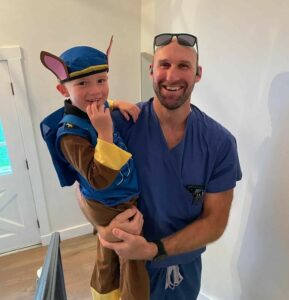
Flaster recently spent two weeks training IDF reserve doctors to provide emergency care at Assuta Ashdod Medical Center. The need for doctors trained in trauma care has surged in Israel, but many doctors in specific fields like dermatology and OB-GYN may not be trained in the treatment of trauma patients. Flaster worked with these IDF doctors to refresh them on trauma care and how to administer treatment in emergency situations.
He encourages others in his field to go to Israel if they have the means.
“Israel is very strong. The country is more or less united for the first time in a long time,” Flaster noted. “I feel like I was going crazy after Oct. 7. Not everything is perfect now, but I feel much stronger as a person after having volunteered. Now is a more important time to go to Israel than ever before.”
Other first responders have also been traveling to Israel to lend their aid. Howie Cohen, a Phoenix resident and a member of the nursing team at J Camps and Stoler Early Learning Center at the JCC of Greater Baltimore, recently returned from a three-week stint where he stood in for firefighters who had been deployed to the IDF and spent time as part of an IDF medical corps unit.
A retired firefighter and paramedic, Cohen also previously worked as a volunteer at the Pikesville Volunteer Fire Company and once traveled to Haiti to do medical work at an orphanage. It’s also not his first time volunteering in Israel, as he traveled there in 2016 to aid the country during bush fires. Both that trip and this one were facilitated by the Emergency Volunteer Project, which Cohen is a member of.
“I was with 30 reservists in the medical corps, all of whom had uprooted their lives to be there,” he said. “We had everyone from diamond traders to movie producers, and everyone in between. They were all happy to be there, but worried about the future, too. I was often asked what people in the U.S. thought of what was happening, and why I had come to help.”
As for the latter, Cohen and his wife frequently hosted Israeli shlichim at their homes as part of J Camps. He noted that he developed strong bonds with these shlichim, which made him feel closer to Israel.
“They were very happy to see me,” Cohen said of the people he helped. “They were immensely grateful that we were able to come there and help them. And I formed very strong bonds with these people, especially after spending 24 hours a day with them for days on end, eating, sleeping, training and helping the wounded.”



